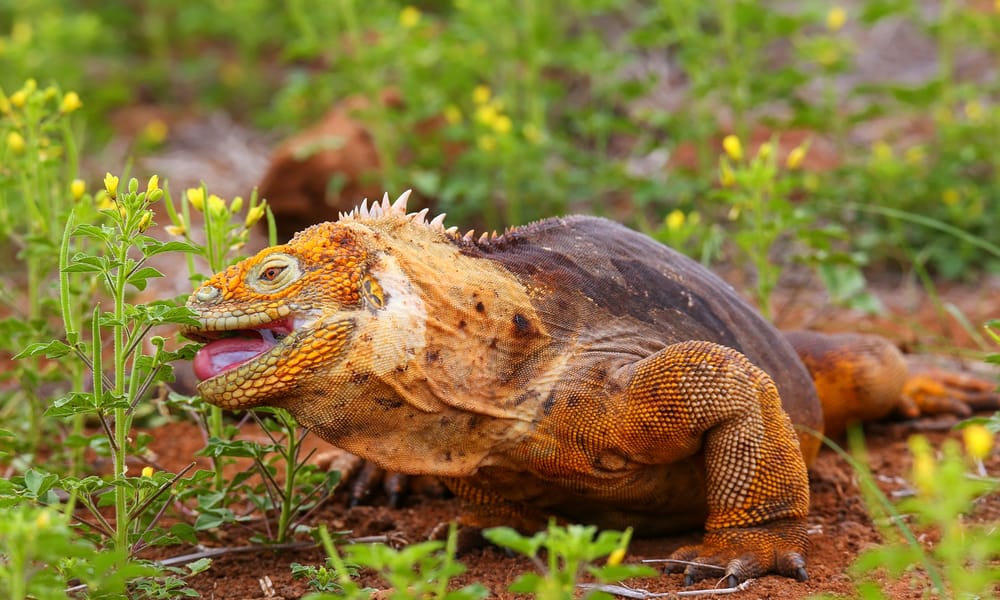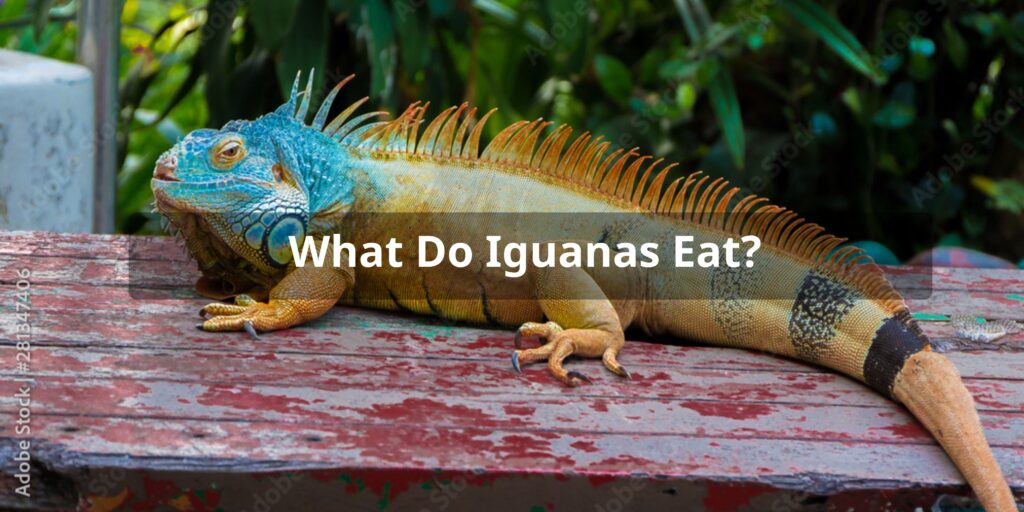Welcome to our comprehensive guide on the diet of iguanas. If you’re a proud owner of an iguana or considering getting one, it’s essential to understand what these fascinating reptiles eat to ensure their health and well-being. In this article, we will dive into the world of iguana diet, covering the basics, essential foods, foods to avoid, feeding guidelines, and hydration needs. Let’s get started!
Iguana Diet Basics
Iguanas have specific dietary requirements that evolve as they grow. Understanding the basics of an iguana’s diet is crucial for providing them with proper nutrition at each stage of their life. Here are some key points to consider:
- Insect to Plant Food Ratio: Young iguanas require a higher proportion of insects in their diet compared to adult iguanas. As they mature, the ratio gradually shifts towards a predominantly plant-based diet.
- Feeding Frequency by Age: Baby iguanas should be fed daily, while juveniles can be fed every other day. Adult iguanas typically need to be fed every two to three days.
Essential Foods for Iguana Diet
To maintain a healthy iguana, it’s important to include a variety of foods in their diet. Here are some essential food categories that should be part of their regular meals:
Preferred Live Food Options
- Crickets: Rich in protein, crickets are a popular live food option for young iguanas.
- Mealworms: These larvae provide essential nutrients and can be a valuable component of an iguana’s diet.
- Waxworms: Although high in fat, waxworms can be offered as occasional treats for adult iguanas.
Safe Vegetables for Regular Intake
- Collard Greens: Packed with calcium, collard greens are a great addition to an iguana’s leafy green repertoire.
- Mustard Greens: These greens offer a good balance of essential nutrients and are usually well-received by iguanas.
- Squash: Rich in vitamins A and C, squash can be cooked and offered as a nutritious vegetable option.
Recommended Fruits for Iguana Diet
- Papaya: This tropical fruit is not only delicious but also provides crucial vitamins and minerals.
- Blueberries: Offering antioxidants and fiber, blueberries can be a tasty occasional treat for your iguana.
- Mango: Rich in vitamin A, mangoes can contribute to the overall health of your reptile companion.
Essential Vitamins & Minerals
Certain vitamins and minerals play a vital role in an iguana’s diet. Here are a few examples:
- Calcium: Essential for strong bones and proper muscle function, calcium should be provided through supplements or calcium-rich foods such as kale and dandelion greens.
- Vitamin D3: To aid calcium absorption, iguanas require exposure to UVB light, either from natural sunlight or artificial sources like specialized bulbs.
Foods to Avoid for Iguana
While there are many suitable food options for iguanas, it’s important to be aware of items that should be avoided due to potential harm they can cause. Here are some examples:
- Live Food: Fireflies, lightning bugs, and any insects caught in pesticide-treated areas should never be fed to iguanas.
- Greens: Spinach and rhubarb contain oxalates that can interfere with calcium absorption. It’s best to avoid these greens in an iguana’s regular diet.
- Fruits: Citrus fruits like oranges and lemons can cause digestive issues in iguanas and should be avoided.
Feeding Guidelines for Iguana Owners

Feeding your iguana correctly requires attention to detail and adherence to certain guidelines. Here are some practical tips to help you provide the best nutrition for your scaly friend:
- Offer a varied diet: Ensure that your iguana receives a mix of leafy greens, vegetables, fruits, and occasionally, live food.
- Provide fresh water: Keep a shallow bowl of clean water available at all times for your iguana to stay hydrated.
- Monitor portion sizes: Adjust the quantity of food based on the age, size, and activity level of your iguana.
- Supplement when necessary: Consult with a reptile veterinarian to determine if your iguana requires additional supplementation.
Understanding Iguana Hydration Needs
Adequate hydration is essential for the health of your iguana. Here are a few important points to consider regarding their hydration needs:
- Water availability: Apart from providing fresh water for drinking, misting the enclosure can simulate rainfall and increase humidity levels essential for proper shedding.
- Bathing: Offering shallow lukewarm baths can not only promote hydration but also aid in maintaining healthyskin and shedding for your iguana.
Conclusion
Proper nutrition is vital for the overall health and well-being of your iguana. By understanding the basics of an iguana’s diet, incorporating essential foods, avoiding harmful ones, following feeding guidelines, and ensuring hydration needs are met, you can provide a balanced and nutritious diet for your scaly companion. Remember to consult with a reptile veterinarian for personalized advice and recommendations based on your iguana’s specific needs. With the right diet and care, your iguana will thrive and enjoy a long, healthy life.
FAQs About Iguana Diet
Can iguanas eat fruits and vegetables?
Iguanas can indeed consume fruits and vegetables as part of their diet. However, it’s crucial to offer a variety to ensure a balanced intake. Leafy greens like kale and collard greens, along with fruits such as berries and melons, can provide essential nutrients while avoiding excessive sugars.
Is it okay to give iguanas insects or worms?
Yes, it’s generally acceptable to provide iguanas with insects or worms as occasional treats. These protein sources can mimic their natural diet, but they shouldn’t constitute the majority of their intake. Always ensure the insects are properly gut-loaded and dusted with calcium before feeding.
How often should I feed my iguana?
Iguanas are usually fed daily when they’re young, and the frequency can decrease as they age. Younger iguanas require more frequent feedings to support growth, while adults might thrive on a diet offered every other day. Adjust portion sizes accordingly for each stage of life.
Are there any foods that are toxic to iguanas?
Indeed, there are foods that can be toxic to iguanas. Items like avocado, rhubarb, and certain citrus fruits contain compounds that could harm them. Additionally, plants treated with pesticides should be avoided. Always research and double-check any new food before introducing it to their diet.
What vitamins and supplements do iguanas need?
Iguanas need proper calcium and vitamin D3 supplementation to maintain healthy bones and prevent metabolic bone disease. Dusting their food with calcium powder and providing exposure to UVB light are essential for their overall well-being.
How can I ensure my iguana’s diet is balanced?
Achieving a balanced diet involves offering a mix of leafy greens, vegetables, and occasional fruits. Aim for variety in both type and color of foods to ensure a broad range of nutrients. Monitoring their weight and consulting a reptile veterinarian can help tailor the diet to their specific needs.
Can I feed my iguana commercial reptile food?
Commercial reptile foods can be included in an iguana’s diet, but they shouldn’t be the sole source of nutrition. These foods vary in quality, so read labels carefully and choose options with natural ingredients and minimal fillers. They should complement fresh foods rather than replace them.
Are there any specific hydration needs for iguanas?
Iguanas require proper hydration for their well-being. Alongside a water dish, you can mist their enclosure to provide humidity and encourage drinking. Additionally, including hydrating foods like cucumbers and leafy greens in their diet can contribute to their overall fluid intake.




